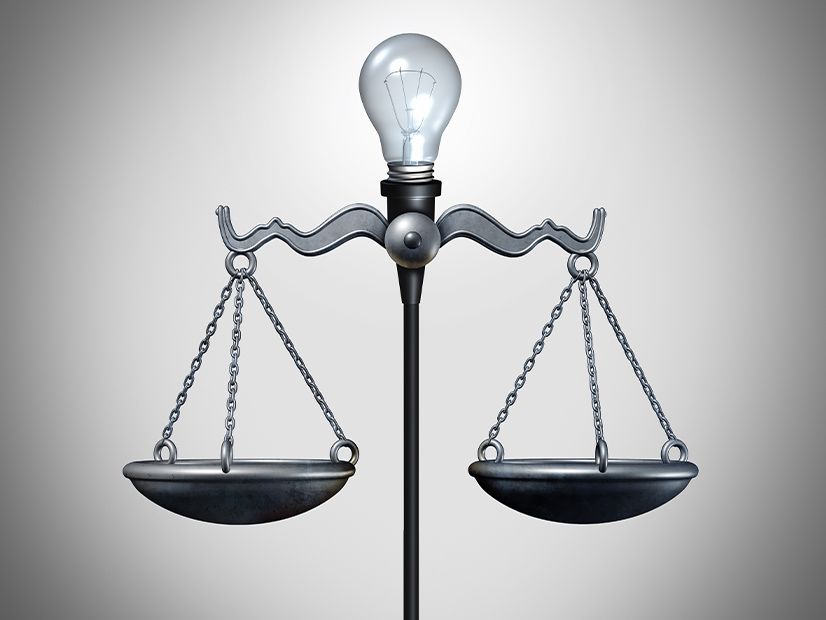By Kenneth W. Costello
Public utility regulation falls within the lexicon of economic regulation with its main objective to protect consumers from the monopoly power of a utility. The presumption is that public utilities provide essential services that require strong service obligations and price controls. It also is inferred that a single private firm would be preferable to allowing the entry of a number of potentially competing firms.
In recent years, state utility regulators have exhibited much more political posturing that deviates from their original mission, often mandated or coerced by the legislature and governor. For example, we have seen regulators approving higher utility rates to advance the agendas of politically influential interest groups like social justice activists. Many regulators have become advocates of the environmental, social and governance (ESG) movement that has spread widely across the corporate and political worlds.
The upswing in special-interest demands afflicting most states comes from clean air advocates, vendors and others who are not utility customers. Their presence in the regulatory arena has proliferated to squeeze out public interest goals. Some interest groups regard anything less than a maximum effort to tackle climate change and a net-zero carbon future as a social injustice. But an obsession with these objectives has threatened long-held policy objectives, like reasonable and stable utility rates, economic growth and reliable utility service. California and several other states have gone down this primrose road.
Politicization of utility regulation — that is, using regulators to gain favors — means many things, mostly bad; that is, more special-interest influence with the potential to jeopardize the public interest by:
-
- further emphasizing myopic effects;
-
- making more difficult execution of the “balancing act” long held by regulators, with the addition of new interests and social objectives;
-
- parting from the charge of regulation to serve the long-term interest of utility customers;
-
- escalating rent-seeking costs and increasing the likelihood of subsidies and mandates; and
- escalating rent-seeking costs and increasing the likelihood of subsidies and mandates; and
-
- spreading the cost and risk for uneconomical, politically driven investments onto utility customers.
Although politicization does not inevitably mean a negative outcome for society, it typically ends up with one interest group unduly affecting governmental actions that harm the public good.
The culprits are politicians and bureaucrats who envision utilities as “social agencies” by extending their domain beyond a for-profit commercial enterprise. Utilities have had to offer special rates and other concessions to low-income households; accommodate, facilitate and even subsidize their competitors (e.g., net metering) and renewable energy; invest in uneconomic new technologies where cost is subordinate to other factors (e.g., the effect on carbon emissions); subsidize energy efficiency; and achieve clean-air targets beyond federal and local mandates. These demands on utilities, which are costly, have complicated their ability to operate in their proper role as profitable entities providing basic services reliably and economically.
Public utility regulators, like other government entities, are susceptible to rent-seeking efforts by advocates with different agendas to achieve self-serving outcomes paid for by utility customers. The electricity industry in particular has several features that make it highly visible and disposed to politics and interest-group lobbying. The major ones are a substantial environmental footprint, a large user of energy (e.g., fossil fuels), provision of an essential service and high social cost from service interruptions.
As pressures intensified for more new social investments, driven largely by politics and other outside forces, utility regulators have had to wrestle more with the economic inefficiencies of cost socialization and subsidies. Subsidies are especially socially damaging, typically the product of increased politicization; they are:
-
- unfair to funding parties (namely, utility customers);
-
- economically inefficient by conveying false price signals; and
- economically inefficient by conveying false price signals; and
-
- unfair to competing energy sources like natural gas.
One common bizarre practice is for electric utilities to subsidize their customers to use less of their service via EE initiatives; and to subsidize their competitors like rooftop solar. Overall, subsidies almost always fail a cost-benefit test when viewed as a public good.
Because of these developments, regulatory failures and capture have magnified. Historically, capture referred to undue influence by utilities at the expense of their customers and the public interest. More recently, capture has encompassed new stakeholders with the same effect of harming utility customers and the public interest.
This modern-day capture has sprung from the progression of certain interests with utilities protected against financial concerns. We are seeing utility customers being “taxed” with surcharges and “innovative rate mechanisms” guaranteeing that utilities recover their investments directed at the general public, rather than just utility customers. Think of subsidies to clean technologies that reduce carbon emissions, which benefit the whole world. One must ask, why should utility customers alone pay for those investments?
Much of what we see today that passes for the public good really is rent seeking, which benefits a distinct minority at the expense of the majority. Overall, regulators need to think hard about distinguishing truth from virtue. We know from experience that government often rationalizes its actions as morally unobjectionable when in fact it bequeaths handouts to a narrow group at the expense of the public good.
Skepticism is called for when government officials declare, for example, that we would all be better off if we consume less electricity and other fossil fuels and produce more renewable energy. Such claims may be out of sync with what is best for society.
Regulators should ask themselves whether utilities’ primary customers are on the short end of the stick. Are customers funding the advancement of social objectives through inflated electricity rates and even lower service reliability without compensatory benefits? These actions are likely to have a regressive effect by disproportionally burdening below-average income households. For example, the beneficiaries might mostly include high-income households while the payers are households of lower incomes. Think of subsidies funded by utility customers for advancing rooftop solar, electric heat pumps and electric vehicles.
What we see is politics and interest groups driving change toward a clean, lower energy-consumption future, whereas utilities are not necessarily opposed, but demand changes in rate-making and other regulatory practices to protect their financial interests. Regulators, pressured by utilities and advocates of clean energy, have acquiesced and even exhibit zeal about this development. They commonly pass through cost increases and revenue losses to utility customers. Regulators should ask: What are the benefits to the majority of utility customers from “footing the bill” for subsidizing clean energy technologies and EE?
We can make one glaring observation: Special-interest groups are the true catalysts of change, with government cultivating their agendas. Either for ideological or monetary reasons, these groups want to shape the future, and the sooner the better. Their interest encompasses only themselves — not the broader public interest. Their vision of the future entails filling up their pockets or satisfying their favorite doctrine.
Yet the job of utility regulators is to balance the interests of different groups to best serve the public good. That places extreme urgency on state utility regulators, to enforce the “balancing act” that trades off different legitimate interests for the common good — a difficult task, yes, but one that society expects regulators to do.
That naturally leads to the question of whether society requires too much from electric utilities. We expect utilities to maintain financial viability, provide reliable and resilient service, make electricity affordable to all customers, adopt and accommodate new technologies that compete with their core business, decarbonize their generation portfolio, and promote less usage of electricity by their customers. No other private business comes to mind in which society expects firms to tackle such a wide range of social issues.
As an illustration, take the case of utility subsidies for EE. While government officials and utilities won’t admit it, the best evidence shows that their ratepayer-subsidized EE programs are likely to fail a cost-benefit test.
The plain question policymakers should ask is whether the market for EE technologies is free of major “market failures.” If so, one can conclude the marketplace is providing energy consumers with the right incentives to “purchase” EE when it is in their self-interest, and energy consumers are rational and unobstructed in making decisions by market barriers. After all, if society feels consumers are rational in making decisions on what other goods and services to buy, what would cause the same consumers to be irrational when they decide on EE investments for their homes and businesses?
Regretfully, the best evidence has had little effect on utility EE programs because the public is unaware of the transfers; EE is widely popular; and politicians, bureaucrats and utilities can enjoy their support. Utilities gain, for example, goodwill with their regulators without suffering any financial consequences or even profiting as a consequence because of new rate mechanisms like revenue decoupling and a premium rate of return for complying with EE mandates.
We should be mindful of the words of Milton Friedman: “One of the great mistakes is to judge policies and programs by their intentions rather than their results.” For many observers, utility (government-subsidized, as well) EE programs transmit good feelings (i.e., virtual signaling) about using less energy. Instead of expanding the subsidies for EE — which many today advocate for — we should give serious consideration to phasing them out or, preferably, eliminating them all together.
Another example of a misdirected policy is the recent efforts to artificially induce energy consumers to switch from fossil fuels for home use and transportation to electricity, which observers call electrification. Proponents of electrification — notably politicians, bureaucrats, electric utility companies and environmentalists — prefer it to happen sooner than later and be accelerated by subsidies and other governmental enticements. Some even advocate mandated electrification or natural gas bans to prevent hyperbolic climate catastrophes. Many view electrification as essential to combat climate change or even as a free lunch.
As with most things, there are two sides, and electrification is no exception. Most champions of electrification fail to consider, or intentionally ignore, its downsides. A major one is the high cost to households and businesses of converting from natural gas and other fossil fuels to electricity — a cost that can amount to thousands of dollars for an individual home. Another downside stems from the efficiency losses in energy markets from prematurely advancing electrification with subsidies (sometimes funded by utility customers with the approval of state utility regulators) and governmental mandates.
Instead of artificially bolstering electrification with subsidies and mandates, policymakers should allow electric technology to evolve on its own without government support. Technology will determine the ultimate success of electrification — not subsidies and other governmental actions that largely are politically driven to serve special interests.
To conclude, one philosophical inquiry is whether bad policies descend from society’s ignorance of their effects, or do strong-armed and self-interested politics always prevail, regardless of the public interest?
An optimist would say truth will prevail. One perception of truth relates it to policymakers’ decisions that rely on impartial information to balance the interests of different stakeholders for the public good. Yet such optimism appears far from compelling when one observes the myriad policies adopted by society and their consequences for the public good.
Kenneth W. Costello is a regulatory economist and independent consultant.




